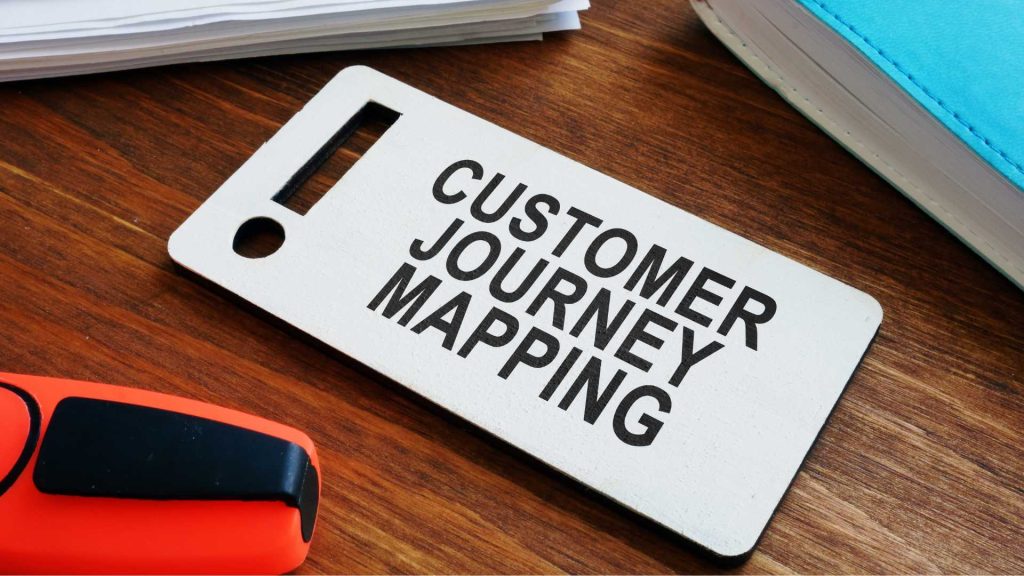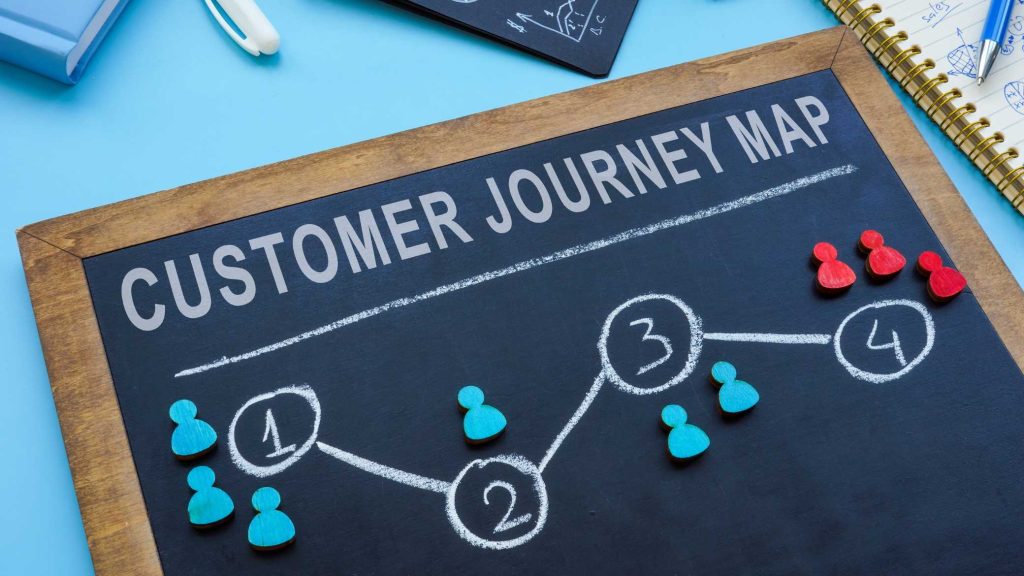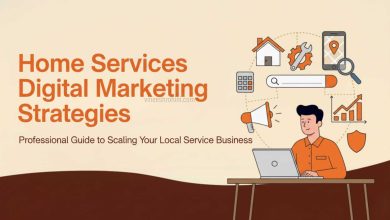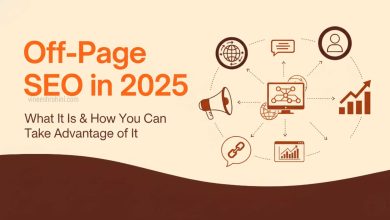How to Create a Customer Journey Map ? : Comprehensive Guide 2025
How to Create a Customer Journey Map : In today’s hyper-competitive digital landscape, understanding your customers isn’t a luxury — it’s a necessity. As businesses transition toward customer-first strategies, one tool stands out as a game-changer: the customer journey map. By 2025, companies that prioritize customer journey mapping are seeing over 2x higher customer satisfaction and loyalty scores, according to recent CX trends.
Table of Contents
Whether you’re a marketer, UX designer, sales strategist, or entrepreneur, this comprehensive guide will walk you through how to create a customer journey map in 2025, why it matters, what tools to use, and how to turn insights into profitable action.
🔍 What is a Customer Journey Map?
A customer journey map is a visual representation of the process a customer goes through when engaging with a brand — from the first point of contact to post-purchase support and beyond. It documents customer actions, thoughts, emotions, and pain points across multiple touchpoints, such as websites, ads, emails, chatbots, apps, and offline interactions.
Also Read : Customer Journey Mapping – How Brands can Improve Customer Experience ?
📈 Why Customer Journey Mapping Matters in 2025

High-ranking keywords: benefits of customer journey mapping, customer journey strategy 2025, how to understand your customers
- Improved Customer Experience (CX)
Mapping helps uncover gaps in communication and friction points, enabling brands to optimize interactions and exceed expectations. - Data-Driven Marketing Decisions
Understand what drives conversions and tailor marketing strategies based on actual behaviors, not assumptions. - Increased Conversions & Loyalty
Targeted journeys boost satisfaction, reduce churn, and increase lifetime customer value (CLV). - Cross-Departmental Alignment
Break silos by unifying marketing, sales, customer service, and product teams under a shared understanding of the customer experience.
🧭 Types of Customer Journey Maps
1. Current State Journey Map
Maps how customers interact with your business as-is. Ideal for identifying friction points and UX gaps.
2. Future State Journey Map
Projects how you want customers to interact with your brand. Great for strategic planning and product development.
3. Day-in-the-Life Journey Map
Explores a broader perspective of your customer’s life beyond your business. Useful for empathy-building.
4. Service Blueprint
Adds internal processes, systems, and employee actions that support each customer touchpoint.
🛠️ Key Elements of a Customer Journey Map
High-ranking keywords: customer journey map components, UX mapping elements, CX visualization tools
- Buyer Persona – The specific user or segment you’re mapping for.
- Stages – Awareness, Consideration, Decision, Retention, Advocacy.
- Touchpoints – Where interactions happen (website, email, store, ad).
- Customer Goals – What they’re trying to achieve at each stage.
- Customer Actions – Clicks, searches, signups, etc.
- Thoughts & Emotions – Pain points, doubts, motivations.
- Opportunities – Areas for improvement or personalization.
- KPIs – Metrics that reflect journey success or issues.
🎯 Step-by-Step: How to Create a Customer Journey Map in 2025
Step 1: Define Clear Objectives
Start by answering:
- What are you trying to improve — onboarding, retention, upselling?
- Which customer segment is this journey for?
📌 Pro tip: Don’t map every user at once. Focus on one specific persona and one goal.
Step 2: Build a Detailed Customer Persona
High-ranking keywords: customer persona creation 2025, digital user behavior, psychographic profiling
Include:
- Demographics (age, location, income)
- Behaviors (shopping habits, device usage)
- Goals & challenges
- Preferred channels (email, social, in-store)
- Emotional drivers
🛠 Use tools like HubSpot Persona Generator, Xtensio, or MakeMyPersona.
Step 3: Identify All Touchpoints
List every point where customers interact with your brand:
- Organic search
- Social media ad
- Landing page
- Email newsletter
- Chat support
- Mobile app
- Checkout process
- Feedback survey
Use Google Analytics 4, Hotjar, and CRM logs to uncover real-time paths.
Step 4: Map the Journey Stages
Typical Customer Journey Stages in 2025:
- Awareness – Customer becomes aware of a problem or need.
- Consideration – Researching solutions and evaluating your brand.
- Decision – Takes action (buy, sign up, book a demo).
- Retention – Experience with your product/service post-purchase.
- Advocacy – Shares feedback, writes reviews, refers others.
At each stage, outline:
- What the customer wants
- What they’re thinking
- What actions they take
- How they feel
- Barriers or challenges
Step 5: Collect Data and Feedback

Sources for Journey Mapping Data:
- Customer interviews or surveys (Qualaroo, Typeform)
- Heatmaps and click tracking (Hotjar, Crazy Egg)
- CRM reports and sales call transcripts
- Social listening tools (Brandwatch, Sprout Social)
- Google Analytics & funnel tracking
- Support tickets and chat logs
🎯 Focus on identifying where customers drop off, hesitate, or complain the most.
Step 6: Visualize the Map
Use tools like:
- Miro (visual collaboration)
- Figma (UI/UX-centric mapping)
- Smaply or UXPressia (journey map builders)
- Lucidchart (flowchart-based journey maps)
Make the map:
- Horizontal for timeline flow
- Use icons, color coding, and emojis to represent emotions and actions
- Attach data or links to real examples (screenshots, quotes, analytics)
Step 7: Identify Pain Points and Opportunities
Ask:
- Where is the experience disjointed or slow?
- Which steps have unclear messaging?
- Are there tech issues or broken funnels?
- What emotions are users experiencing?
Then prioritize:
- Quick wins (easy fixes)
- Strategic changes (long-term improvements)
- Automation opportunities (AI chatbots, drip emails)
Step 8: Align Teams & Implement Improvements
Marketing can tailor campaigns to fit each journey stage.
Sales can anticipate objections based on mapped emotions.
Customer service can prepare for common post-purchase issues.
Product teams can fix UI/UX drop-offs.
🔄 Turn the map into actionable tasks in tools like Trello, Asana, or Notion.
Step 9: Measure & Update Regularly
Set KPIs per stage:
- Bounce rate (Awareness)
- Time on page (Consideration)
- Conversion rate (Decision)
- NPS/CSAT (Retention/Advocacy)
- Churn rate
Review quarterly and adapt to:
- New products
- Tech changes (e.g., new app features)
- Algorithm updates
- Shifts in user behavior
🧠 Real-World Example: Ecommerce Brand Journey Map
Persona: Millennial woman, 28, shopping for skincare products
Goal: Find a cruelty-free, affordable serum
| Stage | Touchpoint | Emotion | Pain Point | Opportunity |
|---|---|---|---|---|
| Awareness | Instagram ad | Curious | Too many options | Targeted UGC with benefit |
| Consideration | Product landing page | Interested | Unclear ingredients info | Add quick comparison chart |
| Decision | Checkout page | Hesitant | Shipping costs unclear | Add free shipping bar |
| Retention | Post-purchase email | Satisfied | None | Recommend bundle offers |
| Advocacy | Review request email | Happy | Forget to leave review | Incentivize review with coupon |
🔄 B2B vs B2C Journey Maps – What’s Different?
B2C:
- More emotional, impulse-based
- Shorter buying cycles
- More mobile-driven touchpoints
B2B:
- Longer decision process
- Multiple stakeholders
- Heavily research and logic-driven
B2B journey maps should include decision-makers, influencers, and end users separately.
💡 Customer Journey Mapping Tools to Try in 2025
| Tool | Best For | Pricing |
|---|---|---|
| UXPressia | Dedicated journey mapping | Free + Paid plans |
| Miro | Team collaboration + mapping | Free + Premium |
| Figma | Designers needing UX alignment | Free + Pro |
| Smaply | Journey & persona integration | Paid only |
| Hotjar | Behavior analytics for validation | Free + Paid |
| Lucidchart | Flow-based, clean mapping | Free + Paid |
💬 Expert Tips for Creating Customer Journey Maps
- Always map from the customer’s perspective, not the brand’s.
- Focus on emotional triggers — not just logical steps.
- Don’t assume — validate with data and interviews.
- Make it interactive for teams using clickable prototypes.
- Keep it living — revisit and revise every 3–6 months.
🔥 2025 Trends in Customer Journey Mapping
- AI-enhanced mapping: Tools now offer predictive journey paths based on user data.
- Voice and chatbot mapping: Integrating conversational UX into the journey.
- Hyper-personalization: Dynamic journeys based on behavior and preferences.
- Real-time CX dashboards: Live journey maps using API integrations.
- Emotion heatmaps: AI-analyzed sentiment across stages.
📌 How to Create a Customer Journey Map – Conclusion

Creating a customer journey map in 2025 is no longer just a UX activity — it’s a strategic imperative for any business serious about growth, retention, and customer loyalty. From mapping emotional triggers to identifying friction points, a well-crafted journey map acts as your navigation tool to delivering exceptional customer experiences.
Buy Now : Professional Digital Marketing Course
By following this comprehensive guide, you can build smarter marketing funnels, stronger brand loyalty, and more profitable customer relationships. Start mapping today and empower every department with a crystal-clear vision of what your customer truly needs.
⚠️ Disclaimer : This content is for educational purposes only and does not guarantee specific results. Always validate your customer journey maps with real user research and data analytics.
Keywords : How to Create a Customer Journey Map – How to Create a Customer Journey Map 2025 – How to Create a Customer Journey Map Guide , How to Create a Customer Journey Map Easily



